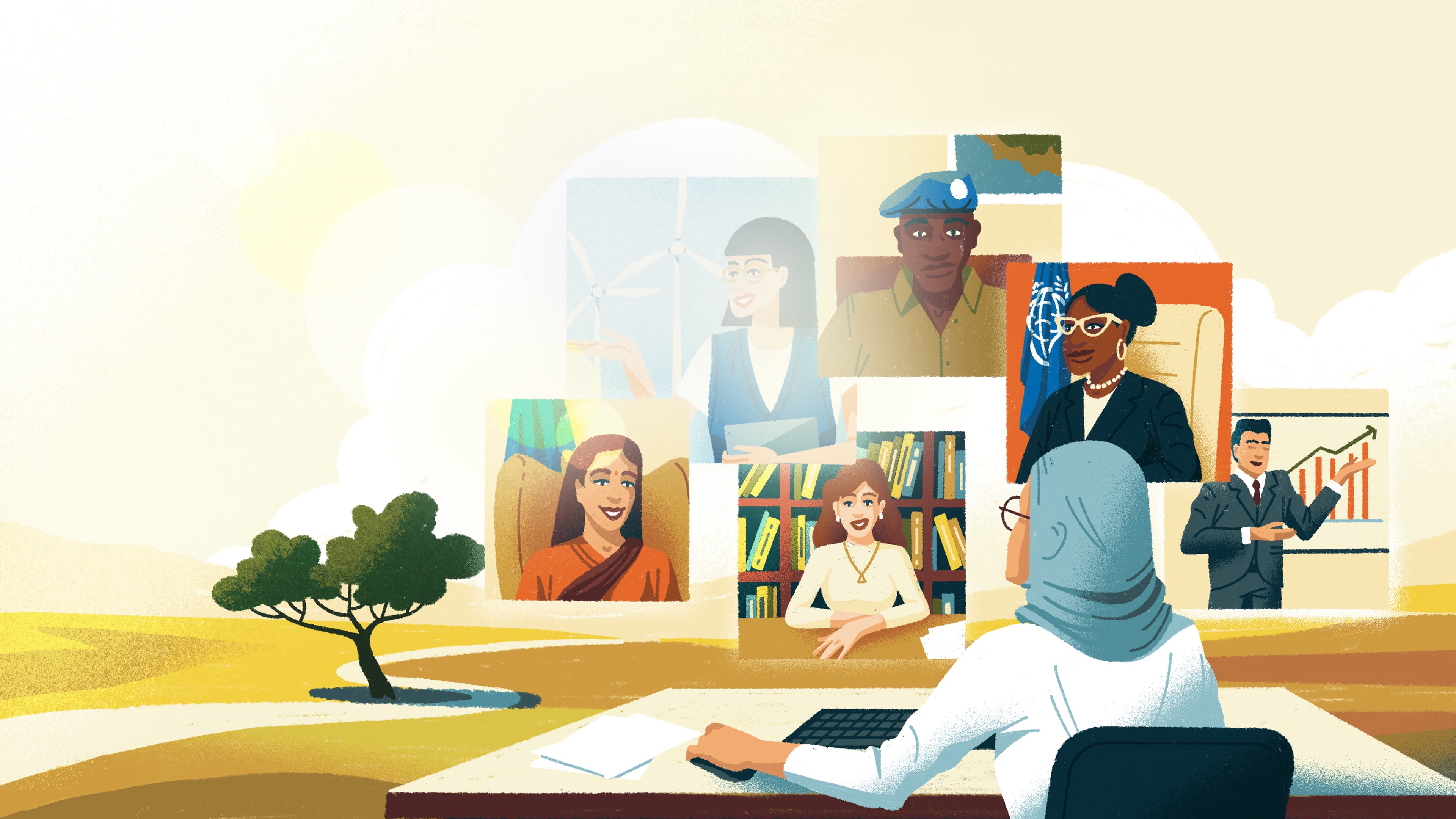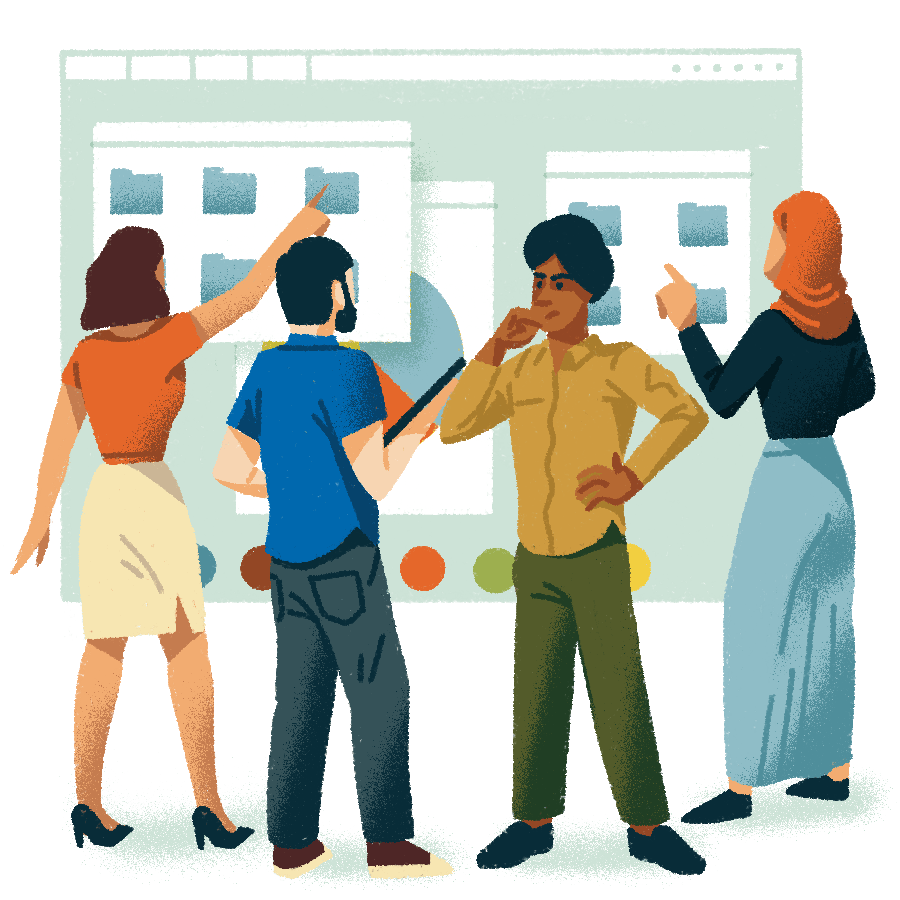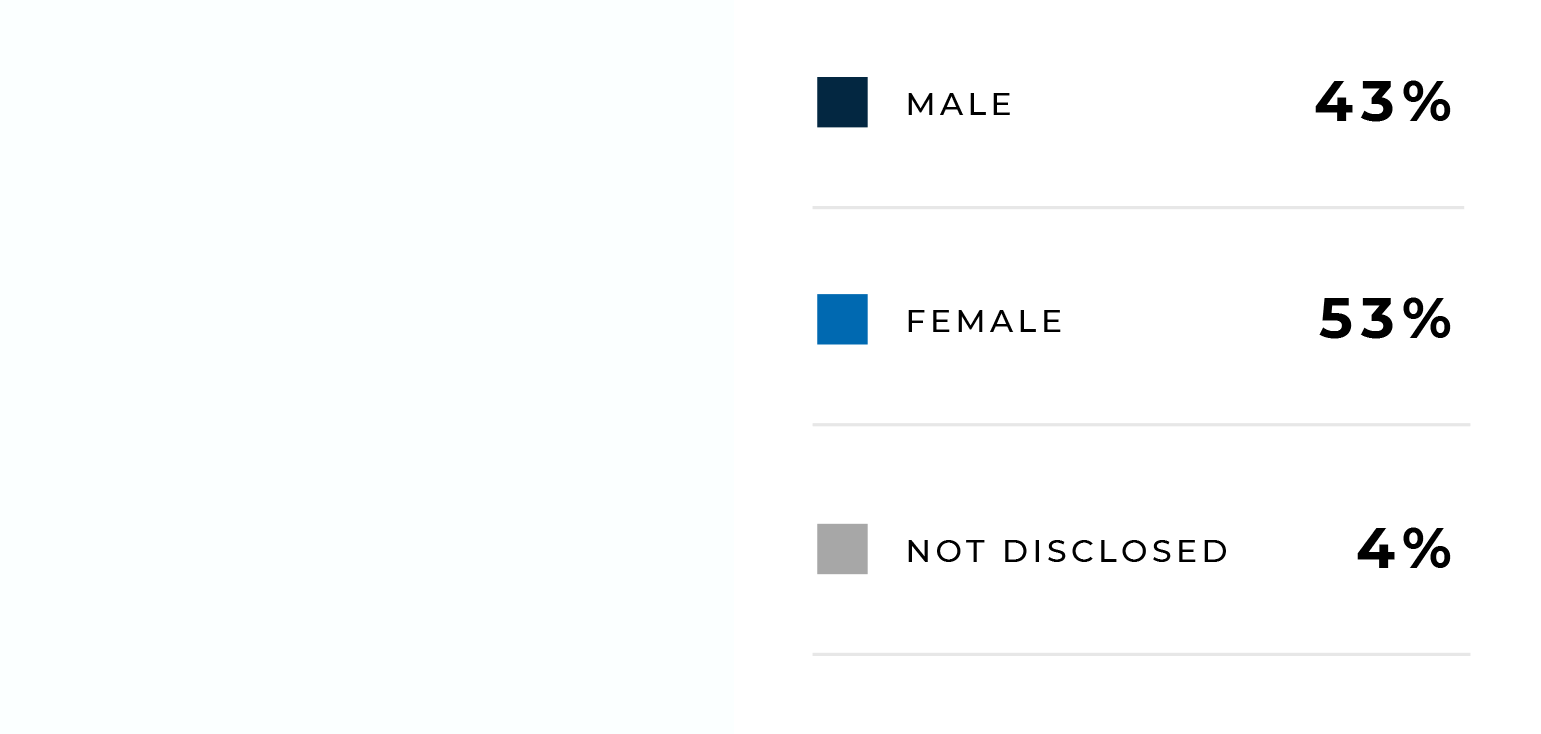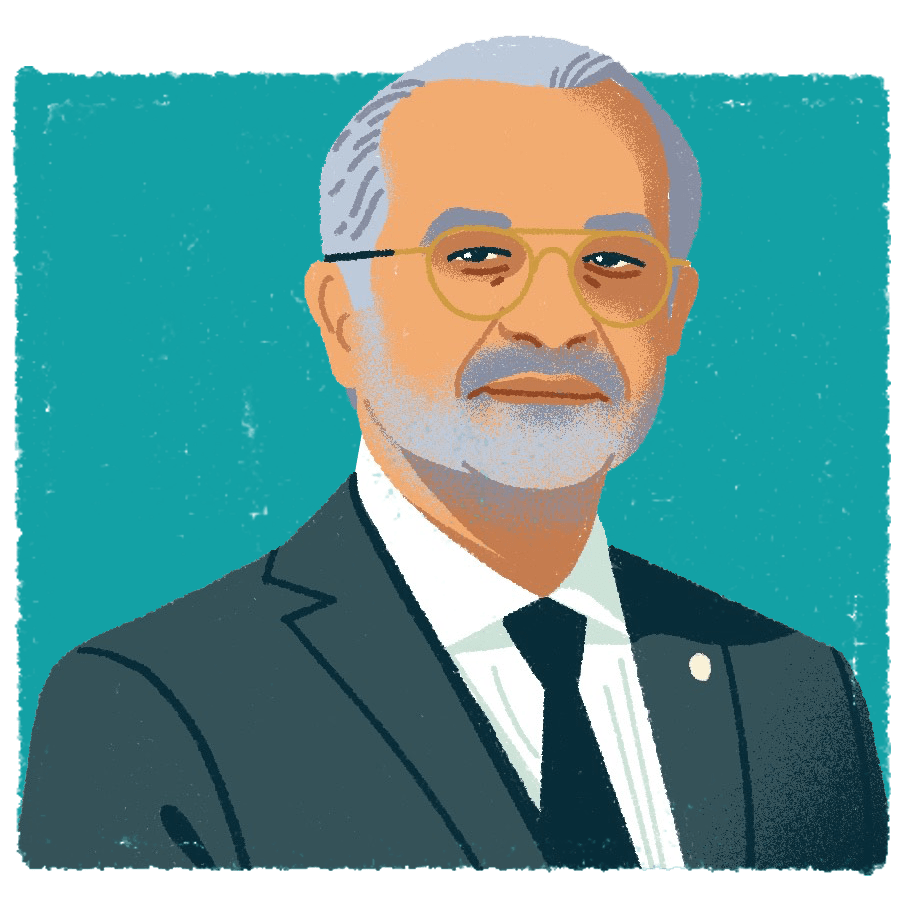
In 2020, COVID-19 challenged the United Nations System Staff College (UNSSC) to deliver learning differently. People across the UN and relevant partner organizations required new knowledge and skillsets to meet the demands of the pandemic to push forward with the 2030 Agenda. Critically, UN staff and relevant partners needed their learning to be offered online.
In the wake of the disruption, the Staff College responded. It leveraged digital transformation and new ways of working to ensure continued access to high-quality learning solutions. While working remotely, UNSSC staff learned how to grow digitally and deliver learning opportunities to support the achievement of the 2030 Agenda, the sustaining peace resolutions and management reform – all the while fostering adaptability, resiliency and agility.


In 2020, the College became a full-fledged online learning provider for the first time in its history. Its ability to produce engaging, first-class e-learning solutions positioned it as a leading learning provider for the UN system and beyond. A total of 281 learning activities and courses reached over 57,000 beneficiaries and partners. Online learning activities grew to 85 per cent of total activities in 2020, up from 24 per cent in 2019. UNSSC significantly increased its number of participants by over 241 percent - a record high for the College. This increase illustrates its successful and seamless incorporation of digital learning and training practices.
Key initiatives led the way: The introduction of
UNSSC pivoted to meet the challenges of a disruptive year and the opportunities of a digital future. This challenging time resulted in a stronger Staff College committed to embracing the multi-dimensional knowledge exchange and capacity development required for the work of the United Nations and relevant partners.
This report tells UNSSC’s story in 2020, highlighting how the College rose to the challenge to ensure access to learning. Led by a vision to empower UN staff and those advancing the 2030 Agenda, the Staff College drew from its learning expertise to provide UN staff and relevant partners with the competencies and knowledge they needed at a critical moment.
In 2020, widespread training and knowledge were needed to build skills and competencies in line with emerging needs. Against this backdrop, the Staff College rose to the challenge to ensure learning for UN staff and relevant partners. Led by our mission to empower people through learning, and in line with our strategic plan, we delivered across three focus areas:
| Who we served | 2020 | 2019 |
|---|---|---|
| Total beneficiaries | 18,982 | 16,334 |
| Direct training | 15,603 | 4,550 |
| Indirect Training | 3,379 | 11,328 |
| Direct training (Number of activities) | 181 | 137 |
| How we did (out of a possible 6.0) | 2020 | 2019 |
|---|---|---|
| How satisfied are you with the overall quality of the training? | 5.2 | 5.2 |
| How relevant to your work was the training you received? | 5.2 | 5.3 |
| How would you rate the UNSSC facilitation and teaching methodology? | 5.3 | 5.3 |



2020 was a critical year. The United Nations needed to respond to the needs of a world jolted by the COVID-19 pandemic. To support countries to address the health crisis, as well as the devastating socioeconomic, humanitarian and human rights effects of the pandemic, and to foster a recovery that builds back better, UN staff and relevant partners required new competencies, skillsets and ways of working.
UN staff and relevant partners needed to manage teams remotely and navigate new levels of uncertainty in order to provide the support requested by Member States on the 2030 Agenda. UN staff needed new approaches to, for example, sustain peace given the new political challenges brought upon by the pandemic. And the restrictions meant they needed to absorb all this new learning online.
The College responded. We became a fully online learning institution for the first time in our history, with a record number of direct participants. The recommendation rate of our courses remained strong – 96 per cent. I am so gratified by our staff, who moved all courses online to meet the needs of UN Staff and those outside the UN who are pushing forward the transformative 2030 Agenda. They did so while maintaining the quality of our programmes.
The pandemic has irrevocably altered the future of learning. I do not expect that we will go back to the way learning was delivered before. We will be delivering learning online much more than we did before the pandemic. According to the World Economic Forum, research suggests that online learning has been shown to increase retention of information, and takes less time to deliver, meaning the changes caused by COVID-19 might be here to stay.
That said, online learning cannot fully replace face-to-face learning, particularly when it comes to programmes that involve bringing together high-level groups on sensitive issues. Accordingly, we stand ready to offer face-to-face learning as soon as it is safe to do so. I look forward to seeing you on campus, either in Turin or Bonn. And of course, I welcome your engagement in our online programmes. Either way, learning will remain a key enabler for the achievement of a sustainable world.
Jafar Javan
Director

